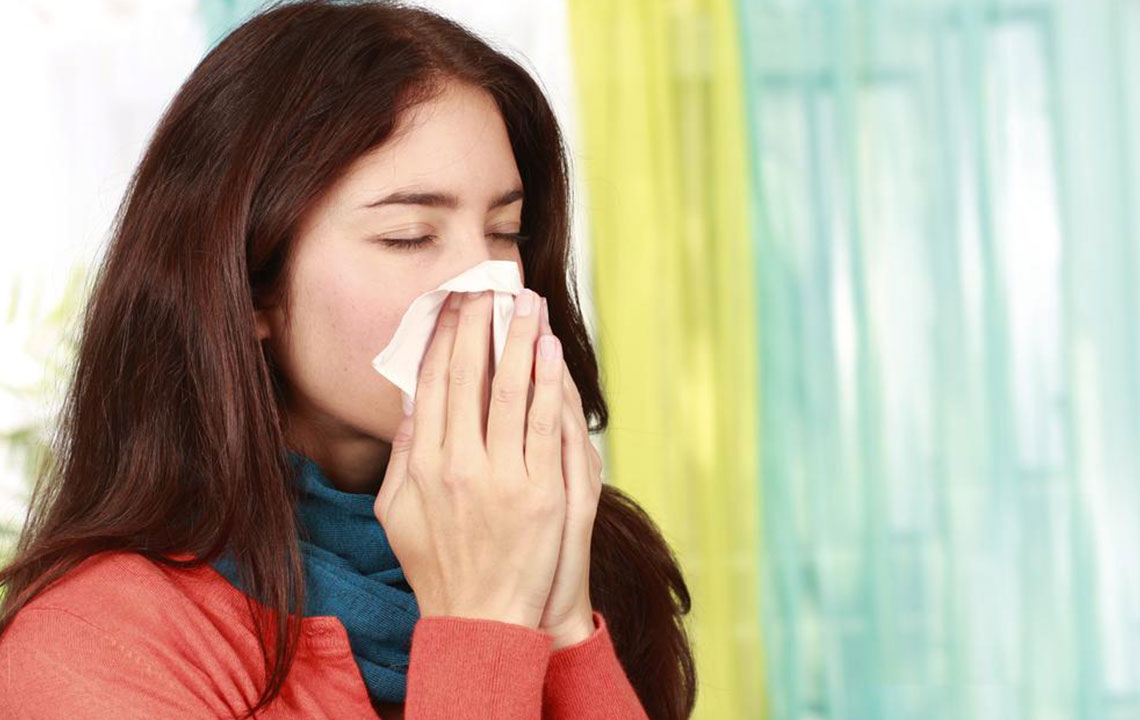Comprehensive Approaches to Relieve a Runny Nose and Enhance Respiratory Comfort
This comprehensive guide explores effective strategies to manage a runny nose, including understanding its causes, preventive tips, home remedies, and medical treatments. It aims to help individuals alleviate nasal congestion, improve breathing, and maintain nasal health through practical and natural approaches. Suitable for those suffering from cold, allergies, or sinus issues, this article offers detailed insights into managing rhinorrhea effectively for daily comfort.

Comprehensive Approaches to Relieve a Runny Nose and Enhance Respiratory Comfort
A runny nose, medically known as rhinorrhea, is a prevalent condition that can affect individuals of all ages at various times. While it is often considered a minor nuisance, persistent or severe nasal discharge can significantly impact daily activities, comfort, and overall quality of life. Understanding the underlying causes and adopting effective remedies can help manage this condition efficiently. This detailed guide explores the common causes, preventive strategies, and proven treatments to alleviate a runny nose and support nasal health.
Understanding the Causes of a Runny Nose
A runny nose occurs when there is an overproduction of mucus by the mucous membranes lining the nasal passages. This excess mucus leads to a visible discharge from the nostrils, which can range from clear and watery to thick and colored, depending on the underlying cause. Several factors contribute to rhinorrhea, including infections, allergies, irritants, and structural abnormalities.
One of the most common causes is the common cold, caused by viral infections such as rhinovirus. During a cold, the immune response triggers increased mucus secretion as the body attempts to trap and eliminate the invading pathogens. Sinus infections, or sinusitis, can also cause persistent runny nose accompanied by facial pain or pressure, congestion, and sometimes fever. Allergic reactions, including allergic rhinitis, are another prevalent cause, especially during pollen seasons or when exposed to dust, pet dander, mold, or other irritants.
In rare cases, structural issues like nasal polyps or deviations in the nasal septum may cause persistent rhinorrhea. Furthermore, environmental factors such as pollution, cigarette smoke, and dry atmospheric conditions can exacerbate nasal congestion and discharge. If a runny nose is accompanied by symptoms like pain, swelling, or bleeding, seeking advice from a healthcare professional is advisable for accurate diagnosis and targeted treatment.
The medical terms for a runny nose are rhinorrhea and rhinitis. Rhinorrhea describes the condition of clear nasal discharge, often associated with viral infections or allergies, while rhinitis involves inflammation and swelling of nasal tissues, leading to excess mucus production. Preventive measures such as maintaining a clean environment, regularly dusting, avoiding exposure to pollutants, washing bedding frequently, and utilizing air purifiers can significantly reduce the likelihood of developing a runny nose. These habits are especially important for individuals prone to allergies or respiratory sensitivities.
Effective Home Remedies and Practical Strategies
While rhinorrhea is usually a minor discomfort, it can interfere with daily routines and work productivity. Fortunately, simple lifestyle adjustments and home remedies can provide significant relief. Staying properly hydrated is essential; consuming warm fluids such as herbal teas, chicken broth, or plain water helps thin out mucus, making it easier to expel. Inhaling steam from hot beverages or using a humidifier can loosen mucus and soothe irritated nasal passages, providing quick relief from congestion.
Additionally, avoiding dehydrating drinks like caffeinated sodas, alcohol, or excessive coffee is crucial to prevent further dryness and support the body's recovery process. Rest and adequate sleep are vital components of immune support, helping the body fight viral or allergic triggers more efficiently.
Advanced and Complementary Treatments
Since viral infections are the primary cause of common runny noses, antibiotics are generally ineffective unless a secondary bacterial infection develops. Instead, several other treatment options can help reduce symptoms and promote nasal comfort.
Antihistamines
Medications such as cetirizine, loratadine, and fexofenadine are anti-allergy drugs that can effectively alleviate nasal congestion caused by allergic rhinitis. They work by blocking histamine release, which is responsible for allergy symptoms. While effective, these drugs may cause side effects like drowsiness or dry mouth. Therefore, consulting a healthcare provider before use is recommended, especially for prolonged applications or those with existing health conditions.
Steam Inhalation and Aromatherapy
Steam inhalation remains one of the most accessible and effective home remedies for nasal congestion. The warm steam helps stimulate mucus drainage and opens nasal passages. For enhanced benefits, adding essential oils such as eucalyptus, peppermint, or tea tree oil can provide additional anti-inflammatory and antimicrobial effects. Breathing in this aromatic steam for several minutes can significantly reduce nasal swelling and soothe sore throats.
Nasal Irrigation with a Neti Pot
Nasal irrigation using a neti pot is a proven method to cleanse the sinuses and reduce mucus buildup. The device involves pouring a saline solution into one nostril; the solution flows through the nasal passages and out of the other nostril, removing irritants and excess mucus. Proper hygiene, including using distilled or sterilized water, is essential to prevent infections. Following instructions carefully and consulting a healthcare professional before beginning nasal rinsing ensures safe and effective use.
Dietary Modifications and Spicy Foods
Consuming spicy foods containing chili peppers, ginger, horseradish, or wasabi can help clear nasal congestion due to their natural decongestant properties. The heat stimulates mucus flow and helps flush out nasal passages. However, individuals unfamiliar with spicy foods should introduce them gradually to avoid discomfort or gastrointestinal irritation. Combining dietary approaches with other remedies can enhance overall relief.





